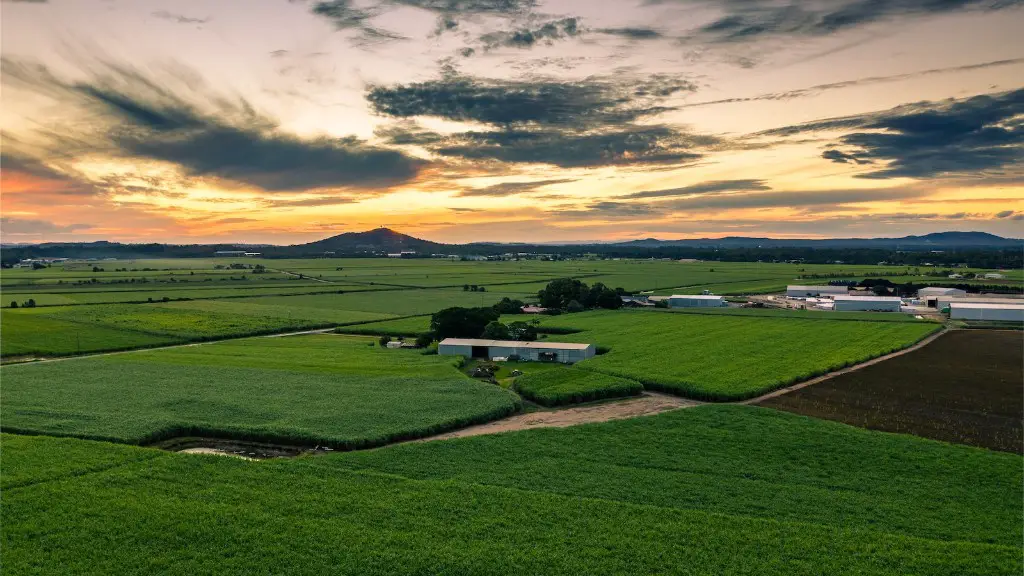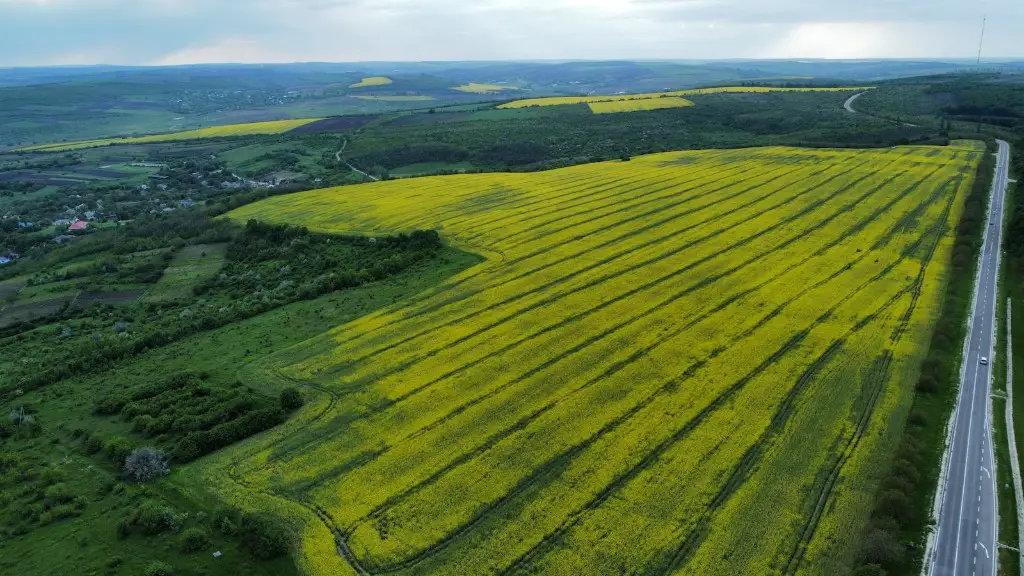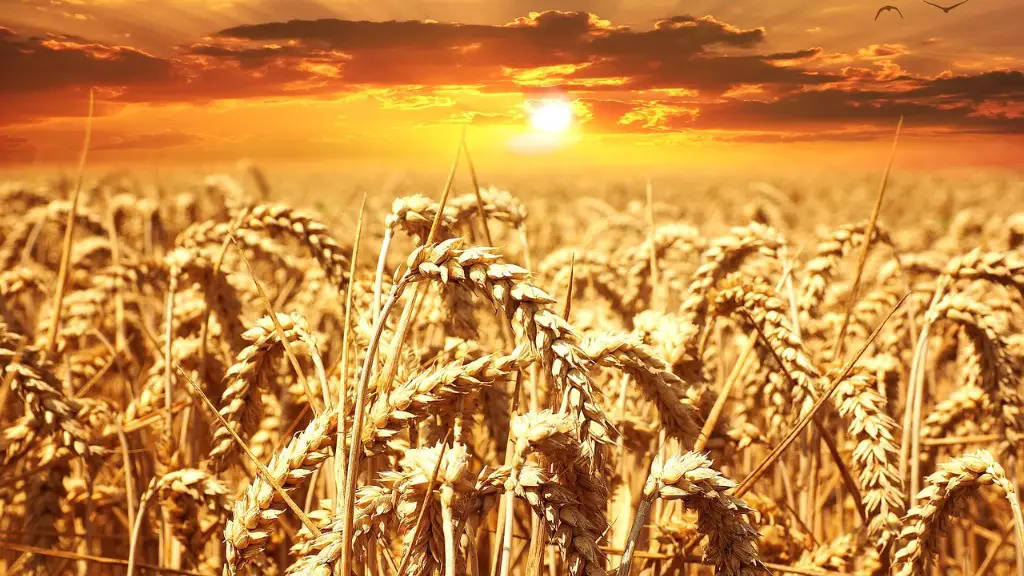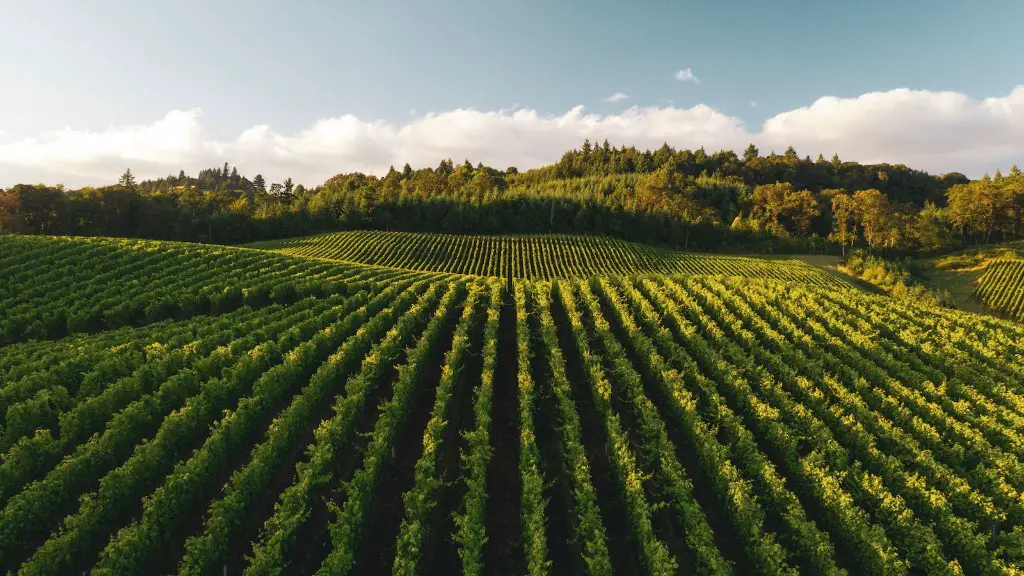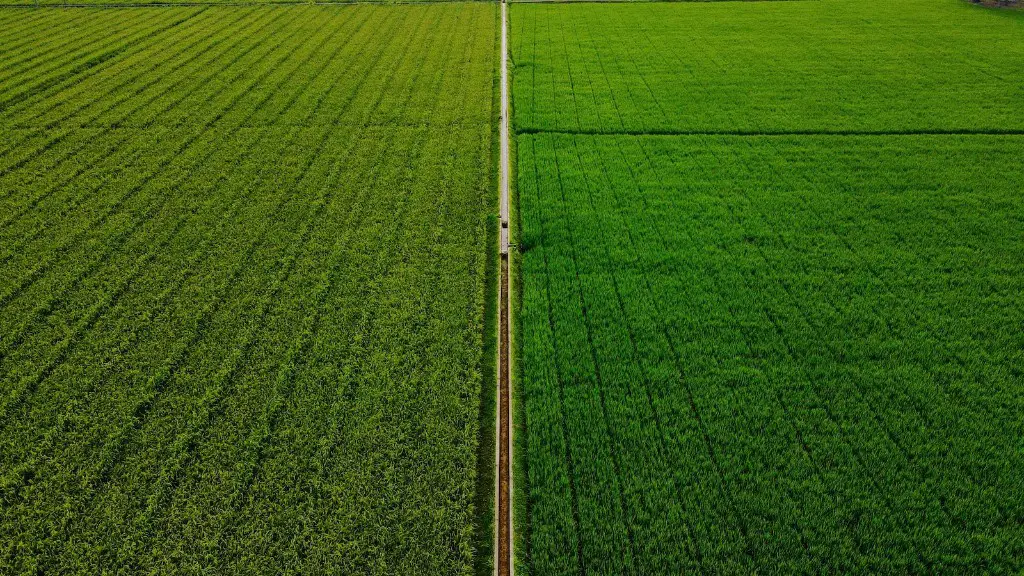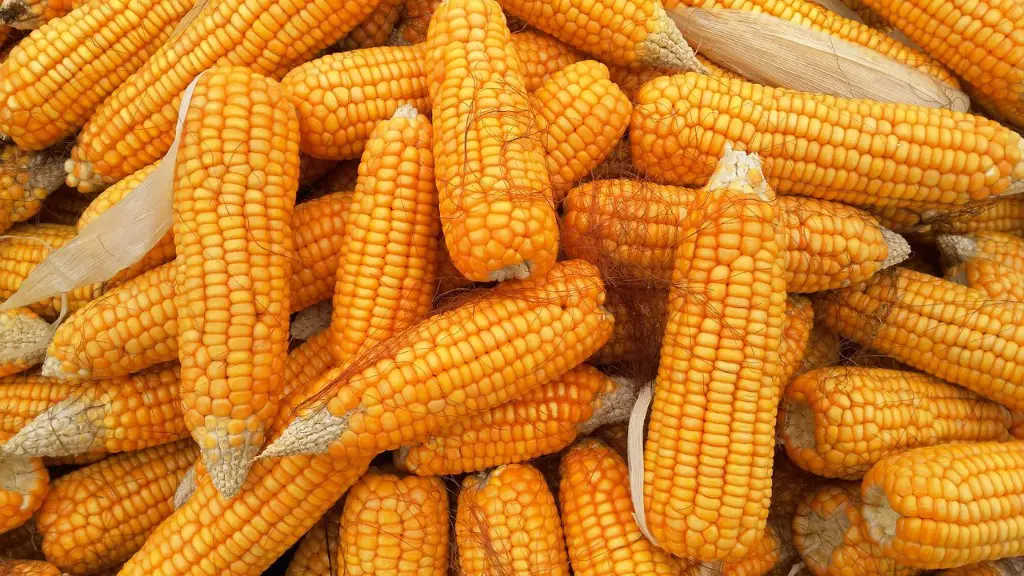There are many benefits of sustainable agriculture. One benefit is that sustainable agriculture practices can help to reduce greenhouse gas emissions. Greenhouse gas emissions contribute to climate change, and so by reducing these emissions, we can help to mitigate the effects of climate change. Another benefit of sustainable agriculture is that it can help to conserve water and energy. sustainable agriculture practices can also help to improve soil health, and can promote biodiversity.
There are many benefits of sustainable agriculture, including reducing pollution and soil erosion, improving water quality, and reducing greenhouse gas emissions. Additionally, sustainable agriculture can help to boost local economies and create jobs while also providing fresh, healthy food to communities. Finally, sustainable agriculture practices can help to preserve farmland and ecosystems.
What are the benefits of sustainable agriculture and how we get there?
There are many ways that farmers can conserve the environment and prevent pollution. By adopting sustainable practices, farmers will reduce their reliance on nonrenewable energy, reduce chemical use and save scarce resources. Keeping the land healthy and replenished can go a long way when considering the rising population and demand for food.
When agricultural operations are sustainably managed, they can help protect the environment in a number of ways. For example, they can preserve and restore critical habitats, help protect watersheds, and improve soil health and water quality. WWF works to identify and implement better management practices for agriculture that can make a positive difference for the planet.
What are the pros and cons of sustainable agriculture
Sustainable agriculture has many advantages, but it also has some downsides. For example, it can take farmers longer to carry out their farm operations. However, the benefits of sustainable agriculture outweigh the drawbacks, and it is an important way to help protect our environment.
Over the past 50 years, agricultural productivity growth has played a critical role in reducing poverty, increasing food security, and mitigating greenhouse gas emissions. It has supported economic growth that has put money in farmers’ pockets and boosted rural economies.
What are the three main goals of sustainable agriculture?
Sustainable agriculture is a rapidly growing field that integrates three main goals: environmental health, economic profitability, and social equity. A variety of philosophies, policies and practices have contributed to these goals, but a few common themes and principles weave through most definitions of sustainable agriculture.
The first principle is that sustainable agriculture must be environmentally sound. This means that it must conserve and improve the natural resources upon which agriculture depends – including soil, water, and biodiversity. Sustainable agriculture must also minimize pollution and other environmental impacts.
The second principle is that sustainable agriculture must be economically viable. This means that it must generate sufficient income to cover the costs of production and provide a decent standard of living for farmers and farm workers. Sustainable agriculture must also be financially accessible to small-scale and marginal farmers.
The third principle is that sustainable agriculture must be socially just. This means that it must provide fair and equitable conditions for all those involved in agriculture – including farmers, farm workers, and consumers. Sustainable agriculture must also address the needs of marginalized and disadvantaged groups.
Farming is a great way to get exercise and fresh air while spending time outdoors. It is also a challenging and stimulating form of work that can provide a source of income in rural areas. Farm work can help develop younger generations by teaching them responsibility and hard work. Additionally, farming can help the environment thrive by providing healthy food and natural resources.
What are 3 reasons why agriculture is important?
1) Agriculture is the main source of raw materials for many industries.
2) Agriculture is important to international trade.
3) Agriculture plays a big role in a nation’s revenue.
4) Agriculture provides employment for many people.
5) Agriculture is crucial to a country’s development.
6) Agriculture can help heal the environment.
7) Agriculture goes hand-in-hand with war.
8) Agriculture is essential to the economy.
9) Agriculture is a way of life for many people.
10) Agriculture is important to the world.
Agriculture can help reduce poverty, raise incomes and improve food security for 80% of the world’s poor, who live in rural areas and work mainly in farming.
The sector is a major source of livelihoods for rural households and accounts for the majority of employment in many developing countries. Agriculture also plays a key role in poverty reduction, as it is one of the most effective ways to boost incomes and improve food security for the poorest and most vulnerable people.
There are many ways in which agriculture can help reduce poverty, including:
1. By providing employment and income opportunities for the poor
2. By increasing food security and nutrition
3. By contributing to economic growth and development
4. By providing a safety net for the most vulnerable
Agriculture is a critical sector for poverty reduction and economic development, and there is a need for policies and investments that support smallholder farmers and the rural poor.
What are 4 sustainable agriculture practices
Sustainable agriculture practices are those that protect and improve the natural resources upon which agriculture depends. They also strive to produce food in a way that is harmonies with the environment and human health. Such practices include rotating crops and embracing diversity, planting cover crops and perennials, reducing or eliminating tillage, applying integrated pest management (IPM), integrating livestock and crops, adopting agroforestry practices, and managing whole systems and landscapes.
The challenge of growing enough food is significant for sustainable farmers. With the world’s population increasing, the demand for food also increases. While sustainable farmers may use methods that are more environmentally-friendly, they must still find ways to produce enough food to meet the demand.
Water scarcity is another challenge sustainable farmers face. As climate change causes droughts in certain areas and depletes water resources, sustainable farmers must find ways to conserve water and use it efficiently.
Loss of usable land is another challenge, as development and urbanization encroaches on agricultural land. This leaves sustainable farmers with less land to work with, and they must find ways to make the most of the land they do have.
High energy use is also a challenge, as sustainable farmers often have to use more energy-intensive methods to produce food. Climate change is a major factor in this, as extreme weather patterns can make it difficult to grow crops using traditional methods.
Finally, the cost-efficiency of sustainable practices is a challenge. Sustainable farmers often have to spend more on resources and labor, and they may not be able to sell their products for as high of a price as conventional farmers.
Is sustainable farming safer?
It is important to have sustainable farms without the use of hazardous chemical pesticides. These farms are much safer and healthier for their farmers, workers and surrounding communities, and the food they produce is free of chemical residues.
Agriculture is a key sector in the fight against climate change. For agriculture to be sustainable, using clean, efficient and renewable energies is crucial. Examples of renewable energies and energy efficiency in agroindustry systems include solar irrigation, geothermal heating and drip irrigation.
Solar irrigation is a type of solar energy application that uses solar panels to pump water. Solar panels convert sunlight into electrical energy, which can then be used to power a water pump. Solar irrigation can be used to irrigation small farms as well as large-scale agricultural operations.
Geothermal heating uses the heat from the Earth’s core to heat water or buildings. Geothermal energy is a renewable resource that can be used to replace fossil fuels such as natural gas and oil. Geothermal heating can be used in greenhouses to create optimal growing conditions for plants.
Drip irrigation is an irrigation method that uses a system of pipes to deliver water directly to the roots of plants. Drip irrigation is a more efficient way to water plants, and can help reduce water usage in agriculture by up to 50%.
Using clean, efficient and renewable energies in agriculture is essential to creating a sustainable future.
What are the five principles of sustainable agriculture
The five key principles of sustainability are:
1. Improving efficiency in the use of resources
2. Conserving, protecting and enhancing natural ecosystems
3. Protecting and improving rural livelihoods and social well-being
4. Enhancing the quality of life for all
5. Managing natural resources for the benefit of all
Many people are interested in sustainable and innovative growing techniques that can be used in cities. These techniques include backyard farms and gardens, community gardens, rooftop farms, growing crops in urban greenhouses, indoor hydroponic farms, and perhaps even growing food inside urban farm towers. All of these methods have the potential to provide fresh, healthy food for city residents while also reducing the environmental impact of traditional farming practices.
What is the most important benefit of agriculture?
Agriculture serves as a key source of raw materials for many other industries. Without agricultural products, many industries would not be able to survive. This is because agricultural products provide the essential raw materials needed for the production of many items.
The US Bureau of Economic Analysis (BEA) tracks the contributions of different sectors of the economy to US gross domestic product (GDP). In 2021, the BEA estimated that agriculture, food, and related industries contributed roughly $1264 trillion to US GDP, a 54-percent share. The output of America’s farms contributed $1647 billion of this sum—about 07 percent of US GDP.
The BEA’s definitions of “agriculture, food, and related industries” are broad, and they include everything from farming and ranching to food manufacturing, wholesale and retail food sales, and food services. So, while the agricultural sector itself is relatively small, its contribution to the overall economy is significant.
What are the benefits of good agricultural practices
Good Agricultural Practices (GAP) are a set of standards for farm management and agronomic practice, with the goal of producing safe, high quality food and non-food products. Following these standards will help ensure sustainable yield, protect the environment, and develop livelihoods.
Agriculture has a significant impact on the environment, both positive and negative. On the positive side, agriculture can lead to soil conservation, water conservation, and cleaner air. On the negative side, agriculture can contribute to soil erosion, water pollution, and climate change.
Final Words
There are many benefits of sustainable agriculture, including:
1. improved soil health
2. increased water efficiency
3. reduced reliance on fossil fuels
4. reduced chemical use
5. increased biodiversity
6. improved crop yields
7. improved economic viability for farmers
8. reduced greenhouse gas emissions.
Sustainable agriculture is a type of agriculture that is defined as being environmentally friendly, meaning that it does not lead to the pollution of our air, water, or soil. This type of agriculture also strives to conserve our natural resources, such as forests, water reserves, and soil, by using them in a way that leaves them undamaged and able to replenish themselves. Additionally, sustainable agriculture is often organic, meaning that it avoids the use of synthetic fertilizers and pesticides. Sustainable agriculture has many benefits, including the following:
-It helps to protect our environment by not polluting our air, water, and soil.
-It conserve our natural resources, such as forests, water reserves, and soil.
-It produces food that is healthy and free of synthetic pesticides and fertilizers.
-It creates shelves full of healthy and delicious organic produce, meats, and dairy products.
